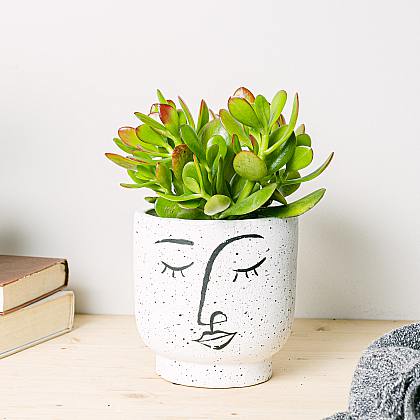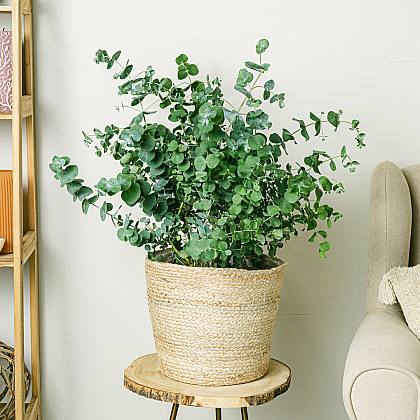NATURAL WAYS TO BANISH APHIDS AND SAVE YOUR PLANTS
Hey there! Are you tired of dealing with pesky aphids wreaking havoc on your plants? Well, I've got some good news for you. In this article, I'm going to share effective strategies to control aphids using natural methods.

Hey there! Are you tired of dealing with pesky aphids wreaking havoc on your plants? Well, I've got some good news for you. In this article, I'm going to share effective strategies to control aphids using natural methods.
We'll explore techniques like strong water sprays, homemade soap sprays, and attracting natural predators. Plus, I'll give you tips on spraying techniques, precautions, and post-spraying care.
Don't worry, with the right knowledge, you can banish those aphids and save your precious plants. Let's dive in!
Aphid Behavior and Identification
One key aspect of aphid control is understanding their behavior and identifying their presence on plants.
Aphids have a unique life cycle, starting with eggs that hatch into nymphs. These nymphs then mature into adult aphids, which can reproduce rapidly.
Signs of an aphid infestation include distorted or curled leaves, sticky residue on leaves known as honeydew, sooty mold growth on leaves, and the presence of ants on plants.
Aphids are most active in early spring to summer, especially on fresh, tender new growth. They can be found on the undersides of leaves, stems, and other tender plant parts.
It's important to regularly inspect plants for aphids and take prompt action to control their populations.
Natural Ways to Control Aphids
I've found that using natural methods is an effective way to control aphids and protect my plants. One method is attracting beneficial insects like lady beetles, green lacewings, and parasitic wasps. These insects feed on aphids and help keep their populations in check.
Another effective natural option is neem oil. neem oil is a natural insecticide that disrupts the feeding and reproductive behaviors of aphids. It's safe to use on most plants and has shown good effectiveness in controlling aphids. When using neem oil, it's important to follow the instructions on the label and apply it thoroughly, covering the top, middle, and bottom layers of the plant.
Spraying Techniques and Precautions
To ensure effective control of aphids and protect my plants, it's essential to utilize proper spraying techniques and take necessary precautions.
Using spraying techniques effectively is crucial for maximizing the effectiveness of the treatment. When spraying, it's important to cover all layers of the plant, including the top, middle, and bottom, paying special attention to the undersides of leaves and tender plant parts.
It's also important to wear protective gear, such as rubber dishwashing gloves, to protect the hands and wrists from any potential harm.
Additionally, it's important to avoid spraying on a windy day to prevent the spray from drifting off target.
Following these techniques and taking necessary precautions will help ensure successful aphid control and protect the health of my plants.
Post-Spraying Care and Long-Term Aphid Control
After completing the spraying process, it's important to implement post-spraying care and establish long-term aphid control measures to ensure the ongoing health and vitality of my plants.
Preventing aphid infestations is crucial, especially in different climates. Regularly inspecting plants for signs of aphids and taking early action can help prevent infestations from worsening.
Additionally, promoting a healthy garden by providing adequate sunlight, proper watering, and balanced nutrition can make plants less susceptible to aphid attacks. It's also beneficial to attract natural predators like lady beetles and green lacewings, as they can help manage aphid populations.
Remember that there's no guaranteed permanent solution for aphid control, so finding the most effective treatment method for your specific situation is key.
Attracting Natural Predators
Implementing post-spraying care and establishing long-term aphid control measures, such as attracting natural predators, is essential for maintaining the ongoing health and vitality of my plants.
Here are two effective ways to attract natural predators and keep aphids in check:
Benefits of companion planting:
Planting companion plants like marigolds, dill, and fennel attracts beneficial insects like ladybugs and lacewings that feed on aphids.
These plants provide shelter, food, and nectar for the predators, encouraging them to stay in the garden and help control aphid populations.
Creating a pollinator-friendly garden:
By planting a diverse range of flowering plants, I can attract pollinators like bees and wasps, which are natural predators of aphids.
The presence of these pollinators not only helps with plant reproduction but also helps control aphid infestations naturally.
Homemade Soap Spray Recipe
I can create a homemade soap spray to effectively control aphids in my garden. Making a homemade soap spray is a great alternative to using chemical insecticides. It is easy to make and has several benefits for aphid control. The soap in the spray suffocates the aphids, killing them on contact. The cayenne pepper acts as a deterrent, keeping aphids away from the plants. Here is a simple recipe for homemade soap spray:
| Ingredients | Instructions |
|---|---|
| Water | Mix 1 tablespoon of mild dish soap in 1 gallon of water |
| Mild dish soap | Stir well to combine |
| Cayenne pepper | Add a pinch of cayenne pepper |
| Spray bottle | Pour the mixture into a spray bottle |
Using this homemade soap spray regularly can help keep aphids at bay and protect your plants.
The Importance of Early Action
To effectively control aphids and prevent further damage to my plants, taking early action is crucial. Early detection of aphids allows for prompt treatment, protecting the plants from extensive damage. Here's why early action is so important:
Immediate intervention: Identifying aphids early on gives me the opportunity to take immediate steps to control their population. By doing so, I can prevent them from reproducing rapidly and causing more harm to my plants.
Minimize plant damage: Acting early helps in minimizing the damage caused by aphids. These pests can weaken plants, stunt their growth, and deform leaves and flowers. By taking early action, I can protect my plants and ensure their healthy development.
In conclusion, by implementing the natural strategies and techniques discussed in this article, you can effectively banish aphids from your plants and save your beloved garden. Remember to take early action and treat plants before infestations worsen.
Utilize strong water sprays, natural insecticides, homemade soap sprays, and attract natural predators to combat aphids.
Follow spraying techniques, precautions, and post-spraying care tips for long-term aphid control.
With the right approach, you can protect your plants and enjoy a thriving garden.


